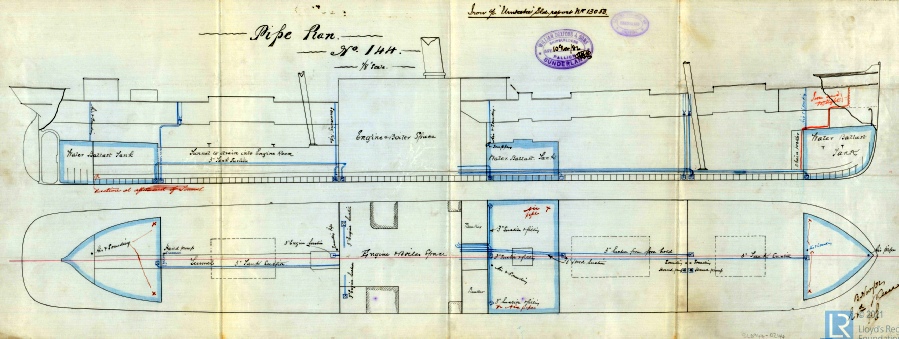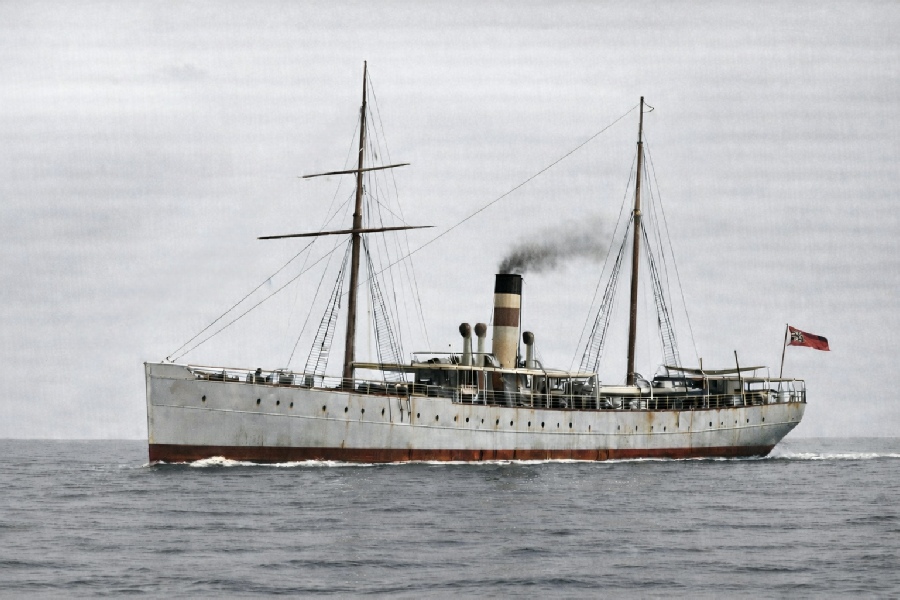REPORT of a Court of Inquiry appointed by Government (G.O., dated the 4th January 1892, No. 2 Marine Department), under section 7 (1) of Act V. of 1883, as amended by section 10 of Act VI. of 1891, to inquire into the circumstances attending the stranding of the S.S. "UMTATA," of London, 1,131 tons, on the Armeghon Shoal, on the 22nd December last.
The s.s. "Umtata" left Calcutta on 18th December 1891 for Madras. On the 22nd the noon position of the ship was latitude 14º 45' N., and longitude 81º 25' E. A current of 25 miles, running in a southerly direction, had been observed since noon 21st. An observation was taken at 4 p.m., 22nd December, and the course was slightly altered. At 10.15 p.m. Captain Dew expected to sight the Pulicat Light, and sent a man aloft, who reported a light after a few minutes. Captain Dew then sent the second officer aloft, who reported that it was a revolving or flashing light. Pulicat is a fixed light. Not being satisfied, Captain Dew sent the chief officer aloft. He made a similar report, and said it was a very curious light. The captain then went aloft himself and observed the light. Returning to the bridge the captain altered the course so as to bring the light nearly ahead. He then made up his mind that it was the Madras Light, and made for what he supposed to be the anchorage. When he was what he thought about six or seven miles from the light the captain expected to see the lights of the town,. but as he did not do so, he remarked to the chief officer that they had better have a cast of the lead. This was not done, and the ship struck at 12.40 a.m., 23rd December on the Armeghon Shoal, which is about six miles from the Armeghon Lighthouse, and about 50 miles north of Madras. Efforts were made to get her off but without effect, and the ship was finally abandoned on 25th December 1891.
The Armeghon Light, which Captain Dew had mistaken for the Madras Light, is described in the "Admiralty Light List" as a regular revolving light in the intervals of 20''. Mr. C. S. Johnson, the Personal Assistant to the Presidency Port Officer, inspected the Armeghon Lighthouse on 26th December, 4 days after the wreck, and found that the light was working irregularly, that the intervals were 38''.3 instead of 20", and that the revolutions which should have taken 2' were taking 3' 50". This incorrect working of the Armeghon Light caused a greater similarity in some respects between it and the Madras Light than there would have been if it had been working correctly, and no doubt mainly caused the disaster. Even when working correctly, the Court is of opinion that the Armeghon and Madras Lights are too similar to one another to be within so short a distance as 50 miles. Captain Dew expressed surprise at finding himself, as he thought south of Madras, but having experienced a strong southerly current the previous day, and seeing a light which he decided was the Madras Light, he felt no doubt as to his position. Owing to the irregularity of the Armeghon Light and to what the assessors no doubt from personal and practical experience call "the complicated and confusing nature of the Madras Light," together with the fact that strong southerly currents may be expected at the time of year, the Court does not greatly blame Captain Dew for the mistake between the two lights which he made. Having no doubt that the light was the Madras Light, Captain Dew approached it, as he says he would approach Madras, without using the lead or taking other steps to verify his position. Had his calculation of the distance run led him to expect to see Madras Light, he might possibly have been excused in following what is said to be the practice though much to be condemned of running towards the anchorage without taking soundings; but as he expected to see Pulicat, and to be a considerable distance from Madras, he ought to have remembered how often mistakes are made, and not have relied on the single fact of a light being in sight which he assumed to be Madras, and the Court must severely censure him for not resorting to the great safeguard he had available in his hand-lead, which, had he used it, would have saved his ship.
(Signed)
O. R. JONES, Chief Presidency Magistrate.
H. B. SIMPSON, Capt , I.M., Member.
9th January 1892.





